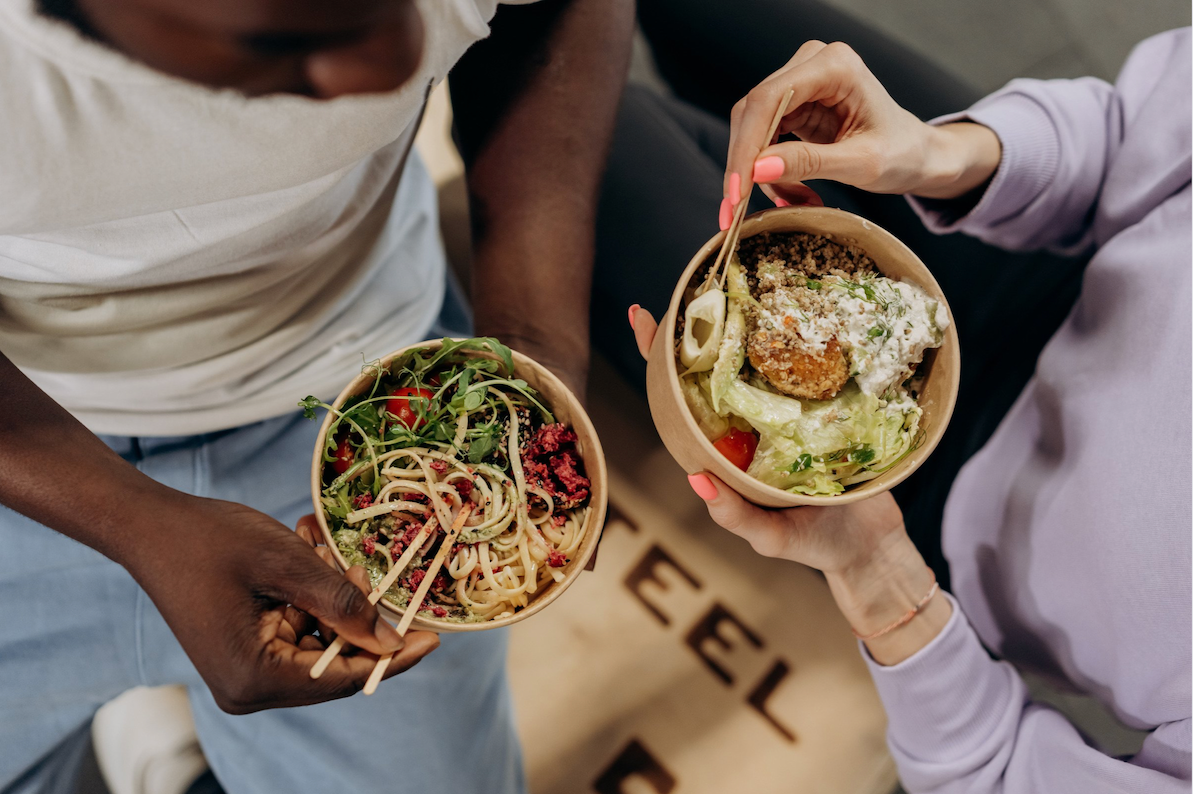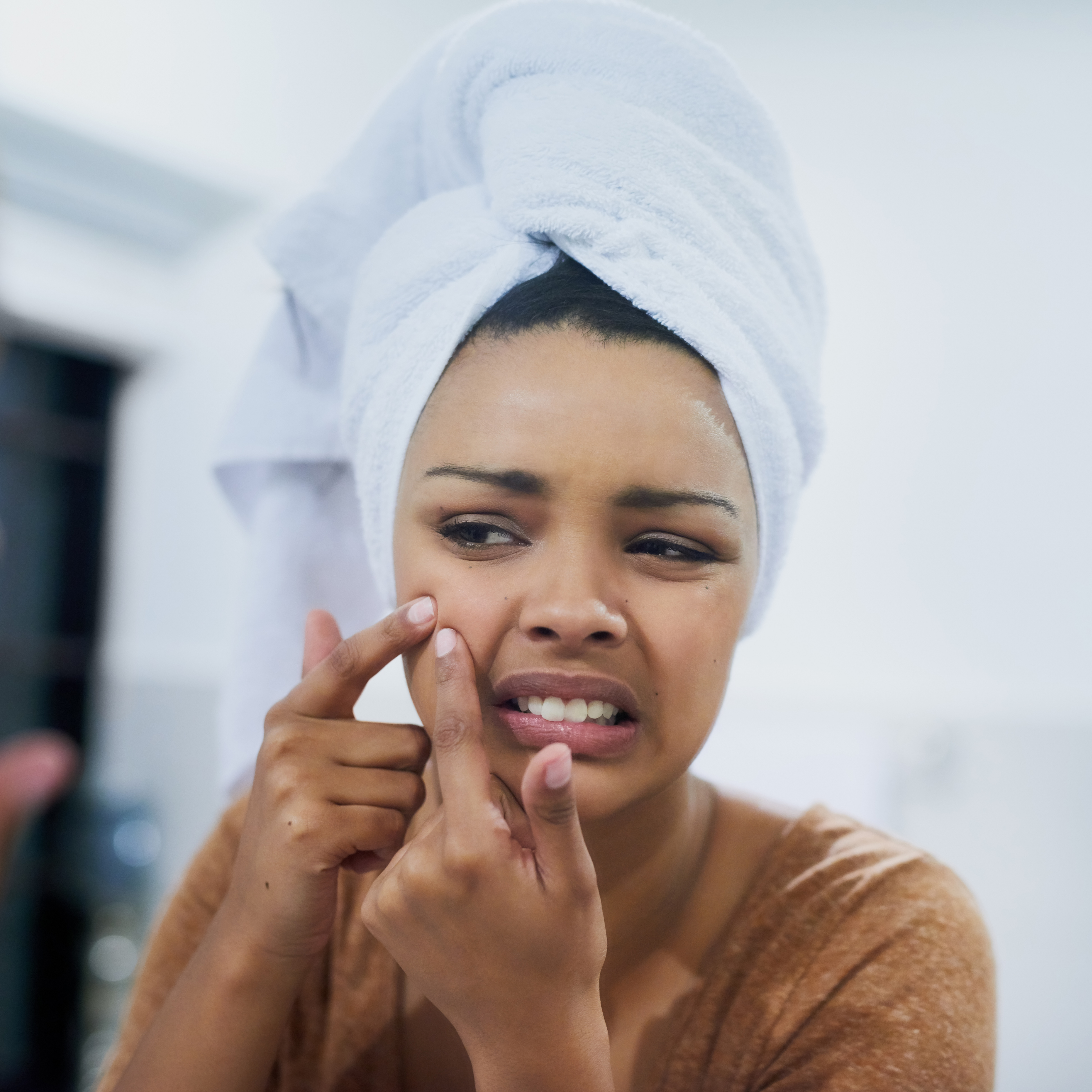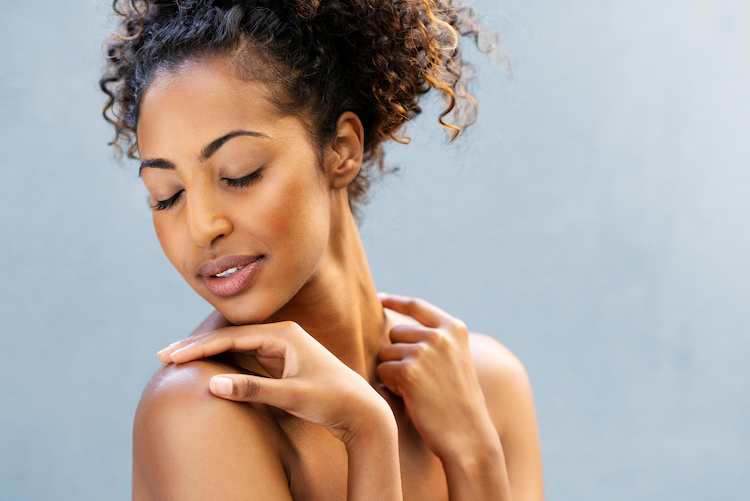
Curb Acne Breakouts with a Plant-Based Diet
We all love our comfort food - pizza, nachos, tacos, ice cream. And unlike our parents’ generation, we tend to eat smaller, more energizing meals and snacks throughout the day, rather than 3 gargantuan meals. Luckily, along with this more moderate, keep-our-tank-full approach, our generation also appreciates balancing our eating habits with “functional foods” and consuming less meat. Whereas older generations may have been more focused on “diet,” we are more focused on “function” or “energy.” We ask, what will the food we eat provide for us? How will it help our performance, sustenance, and energy? We eat mainly for health but of course, also allow ourselves pleasure foods as well. We appreciate and deserve a good balance.
Nearly 6 in 10 of us have increased our functional food purchases, with fruits, vegetables, seafood, and nonalcoholic beverages like coffee, tea, and kombucha among the top categories. (*) Many people are also eating meat substitutes and drinking plant-based milk.
How Do You Choose Your Skincare Foods?
When you choose, what’s your main motivation for choosing fresh, wholesome foods? Do you turn to social media to see what your favorite influencers are recommending, or do you just go with what feels good to your gut? The good news is that what’s healthy for the gut is generally healthy for the skin as well. And we’re here to tell you that you’re on the right path when it comes to choices that will not only treat your body well, but also curb breakouts, reduce acne, and generally slam the door on unwelcome facial guests, especially when paired with products that add fresh, clear brilliance and radiance to your skincare routine.
Are You Really What You Eat?
You’ve probably heard the line “You Are What You Eat.” While it may be hyperbole, it’s an excellent way to remind yourself that whatever it is that sits on a plate in front of you, will soon be inside of you. And what then? It doesn’t just magically disappear, as we sometimes tend to forget! From the esophagus to the stomach, it then hits the small intestine, where it breaks down the food so your body can absorb all the vitamins, minerals, proteins, carbohydrates, and fats! The liver then also filters out harmful substances or wastes. The liver even helps determine how many nutrients will stay behind in storage and which will be distributed throughout the body and skin.
Ellen Marmur, MD, explains that there are hundreds of steps involved in the cycle of skin renewal, of which the foods you eat are components. The body, skin included, is constantly under construction. “It uses vitamins and nutrients from food to repair and rebuild.”(*) Unfortunately, just like any city or state with a lot of roads that all intersect, when there’s construction, it can sometimes cause a breakdown.
What Causes Acne?
We cover the topic of acne quite a bit in our blogs, but basically, acne is a chaos of skin cells, called keratinization – “the process in which cytoplasm in the top layer of skin cells changes into / contains keratin, the main substance that forms hair, nails, horns, feathers, etc.” (*) Umm...excuse me? Horns? Well, that’s what the Cambridge dictionary says! All things considered; acne sounds better than horns or feathers. But to clarify, skin turnover leads to clumped cells that block the oil glands and pores, trapping protein and sebum (your skin’s natural oil) under the skin. Those proteins and oils become food for P. acnes, the bacteria that cause acne.(*)
We want to say sayonara 👋 to Ms. P. Acne. No Ma'am, you are not welcome here! So how do we do that?

Acne-Fighting Foods, Vitamins and Minerals
1. Vitamin A – Vitamin A helps regulate the skin cycle, so acne-causing protein and oil do not get trapped,” Dr. Marmur says. Vitamin A is found in spinach, sweet potatoes carrots, and leafy greens!
2. Zinc – Zinc appears to help prevent acne by creating an environment inhospitable to the growth of P. Acne. It also helps provide tranquility to skin irritated by breakouts. Zinc is found in turkey, almonds, Brazil nuts, and wheat germ.
3. Vitamin E & Vitamin C - The antioxidants vitamin E and vitamin C have a calming effect on the skin. Sources of vitamin C include oranges, lemons, grapefruit, papaya, and tomatoes. You can get vitamin E from sweet potatoes, nuts, olive oil, sunflower seeds, avocados, broccoli, and leafy green vegetables.
4. Omega-3 Fatty Acids – “Omega-3 fatty acids inhibit certain molecules that lead to inflammation and resulting skin problems,” New York City dermatologist Francesca Fusco, MD, says. “They also support the normal healthy skin cell turnover that helps keep acne at bay. You can get omega-3 fatty acids from cold water fish, such as salmon and sardines; flaxseed oil; walnuts; sunflower seeds; and almonds.” (*)
And please, don’t ever forget H2O – water should be a staple in your health plan and skincare routine!
Foods to Avoid When You Have Acne
There are a few main food groups that seem to be the main culprits of either causing or maintaining acne - dairy products, meat, and simple carbohydrates.
1. Dairy
According to a review done at The George Washington University Medical Center, (although the exact link between dairy and acne isn’t always clear), cow’s milk can initiate or worsen breakouts in some people. “It is a complex situation. Put simply, through a series of interactions, the hormones in dairy products increase levels of male hormones called androgens. Androgens increase sebum production, which leads to acne,” Fusco says. In other words, the growth factors and hormones naturally found in milk can somehow act as acne triggers.
So the best way to find out if milk makes your skin break out is to go dairy-free for at least a month and note any changes, while still making sure to get enough calcium. Use a supplement or calcium-fortified foods such as orange juice, cereal, bread, soy milk, and tofu. Almonds, spinach, and broccoli also provide calcium naturally. (*)
2. Meat
According to the American Heart Association, most vegetarian diets are lower in fat, saturated fat, and cholesterol. Replacing saturated fats with healthier unsaturated fats can be anti-inflammatory for the body and skin, and thus lead to less acne. Be sure to work with your doctor or dietitian to maintain healthy levels of nutrients and vitamins normally found in animal-based foods, and try the newest plant-based meats, like Beyond Burger and Impossible Burger, which even some fast-food restaurants are offering! Not only is cutting back on meat good for the skin and body, but it’s another way to be cruelty-free (lessening the need for factory farms, where animals often suffer), and environmentally friendly.

Eating a plant-based burger helps the skin, animals, and the environment!
3. Simple Sugars
Foods with a high glycemic index appear to cause acne breakouts in some people. High glycemic index foods break down quickly during digestion. They include white bread, pasta, potatoes, processed foods like chips and cookies, and sugary sodas and snacks. Fusco mentions that the reason simple sugars cause nasty breakouts is because they cause high insulin levels, which increase the production of skin oils and contribute to the clogging of follicles and clogged pores. Valori Treloar, MD, the author of The Clear Skin Diet, agrees. Essentially, they spike your blood sugar.
Your Skin, Your Protector
Your skin is the largest organ in your body. It deserves merit and glory, as it takes care of you in so many ways. The most amazing news is that so many of the vitamins and minerals mentioned above are also in our Averr Aglow products – for example, there are over 40 natural plant & mineral based Ingredients in our Clear Skin Kit
Vitamin C is infused in our Perfectionist Overnight Serum
Vitamin C & E? Luxuriating in our Pumpkin Refresh Enzyme Mask
And there’s no doubt, that fresh fruits and veggies are always recommended by doctors around the world – from eating routines to our skin routines! So why not supplement our health and skin with ingredients like Apple Fruit Water, Bitter Orange Flower Water, Chinaberry Flower Extract, Pineapple Fruit Extract, and Wild Strawberry Fruit Extract? Magically, you can get all of these vitamins, minerals, and more in our Forever Radiant Kit.
Why not take care of the skin that takes such good care of you?





